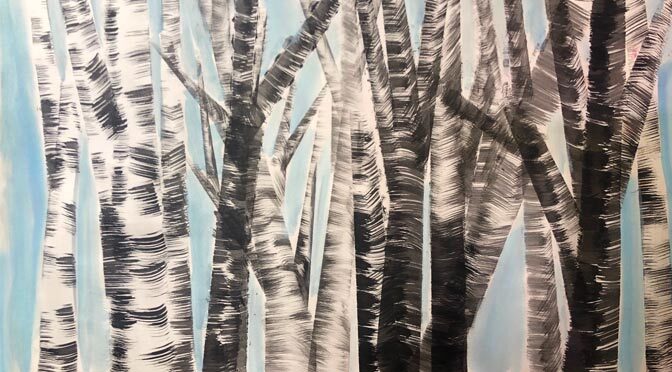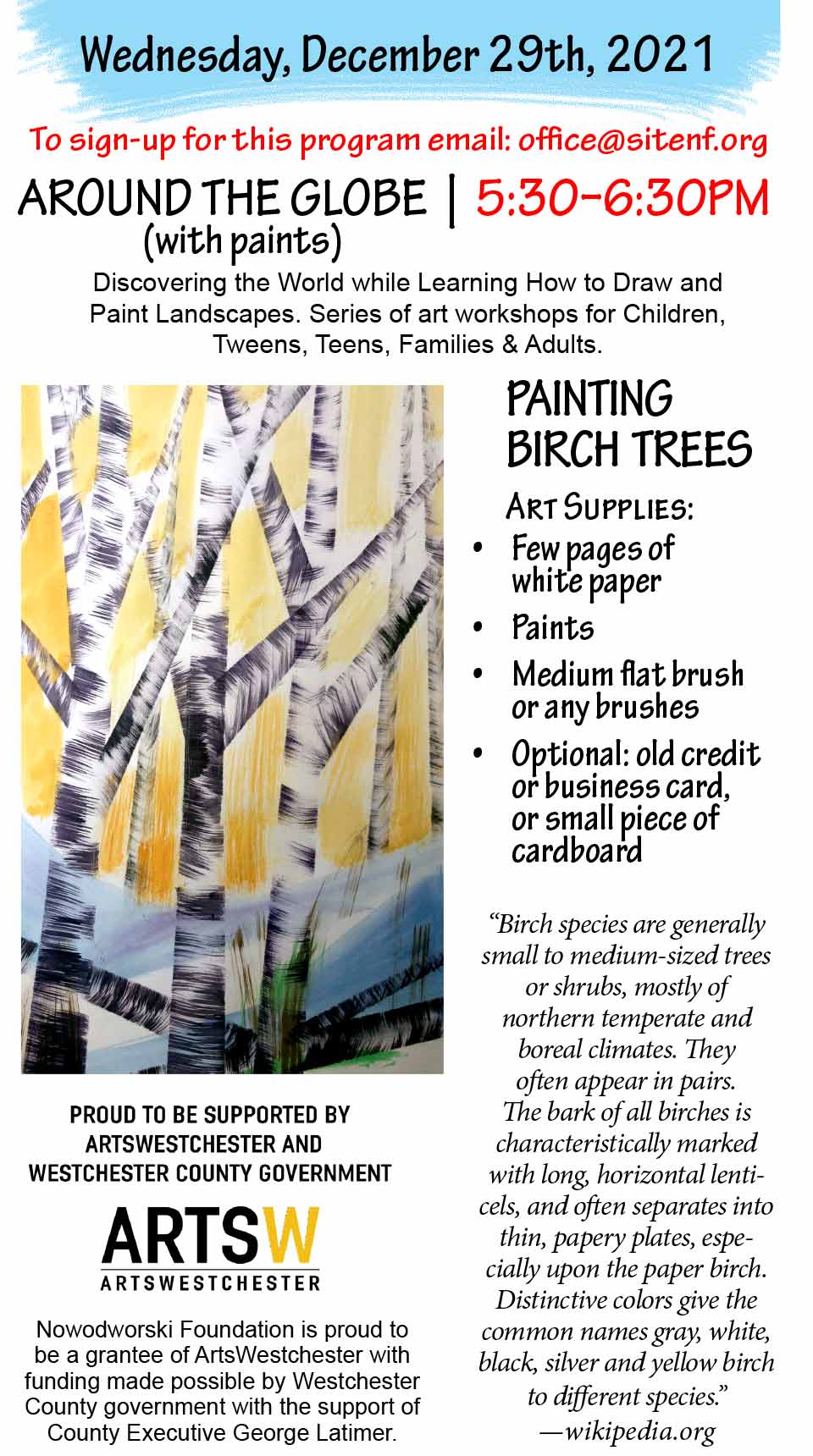“Birches have spiritual importance in several religions, both modern and historical. In Celtic cultures, the birch symbolises growth, renewal, stability, initiation, and adaptability because it is highly adaptive and able to sustain harsh conditions with casual indifference.
The birch is New Hampshire’s state tree and the national tree of Finland and Russia. The yellow birch is the official tree of the province of Quebec (Canada). The birch is a very important element in Russian culture and represents the grace, strength, tenderness and natural beauty of Russian women as well as the closeness to nature of the Russians. It’s associated with marriage and love. There are numerous folkloric Russian songs in which the birch tree occurs. The Ornäs birch is the national tree of Sweden. The Czech word for the month of March, Březen, is derived from the Czech word bříza meaning birch, as birch trees flower in March under local conditions. The silver birch tree is of special importance to the Swedish city of Umeå. In 1888, the Umeå city fire spread all over the city and nearly burnt it down to the ground, but some birches, supposedly, halted the spread of the fire. To protect the city against future fires, wide avenues were created, and these were lined with silver birch trees all over the city. Umeå later adopted the unofficial name of “City of the Birches (Björkarnas stad)”. Also, the ice hockey team of Umeå is called Björklöven, translated to English “The Birch Leaves”.
In India, the birch (Sanskrit: भुर्ज, bhurja) holds great historical significance in the culture of North India, where the thin bark coming off in winter was extensively used as writing paper. Birch paper (Sanskrit: भुर्ज पत्र, bhurja patra) is exceptionally durable and was the material used for many ancient Indian texts. The Roman period Vindolanda tablets also use birch as a material on which to write and birch bark was used widely in ancient Russia as notepaper (beresta) and for decorative purposes and even making footwear (lapti) and baskets.[citation needed]
Baltic birch is among the most sought-after wood in the manufacture of speaker cabinets. Drums are often made from birch. Prior to the 1970s, it was one of the most popular drum woods. Because of the need for greater volume and mid range clarity, drums were made almost entirely from maple until recently,when advances in live sound reinforcement and drum microphones have allowed the use of birch in high-volume situations. Birch drums have a natural boost in the high and low frequencies, which allows the drums to sound fuller. Birch wood is sometimes used as a tone wood for semiacoustic and acoustic guitar bodies, and occasionally for solid-body guitar bodies. It is also a common material used in mallets for keyboard percussion“. —Wikipedia.org
Robert Frost reads “Birches”
http://www.youtube.com/watch?v=aBw-OaOWddY
When I see birches bend to left and right
Across the lines of straighter darker trees,
I like to think some boy’s been swinging them.
But swinging doesn’t bend them down to stay
As ice-storms do. Often you must have seen them
Loaded with ice a sunny winter morning
After a rain. They click upon themselves
As the breeze rises, and turn many-colored
As the stir cracks and crazes their enamel.
Soon the sun’s warmth makes them shed crystal shells
Shattering and avalanching on the snow-crust—
Such heaps of broken glass to sweep away
You’d think the inner dome of heaven had fallen.
They are dragged to the withered bracken by the load,
And they seem not to break; though once they are bowed
So low for long, they never right themselves:
You may see their trunks arching in the woods
Years afterwards, trailing their leaves on the ground
Like girls on hands and knees that throw their hair
Before them over their heads to dry in the sun.
But I was going to say when Truth broke in
With all her matter-of-fact about the ice-storm
I should prefer to have some boy bend them
As he went out and in to fetch the cows—
Some boy too far from town to learn baseball,
Whose only play was what he found himself,
Summer or winter, and could play alone.
One by one he subdued his father’s trees
By riding them down over and over again
Until he took the stiffness out of them,
And not one but hung limp, not one was left
For him to conquer. He learned all there was
To learn about not launching out too soon
And so not carrying the tree away
Clear to the ground. He always kept his poise
To the top branches, climbing carefully
With the same pains you use to fill a cup
Up to the brim, and even above the brim.
Then he flung outward, feet first, with a swish,
Kicking his way down through the air to the ground.
So was I once myself a swinger of birches.
And so I dream of going back to be.
It’s when I’m weary of considerations,
And life is too much like a pathless wood
Where your face burns and tickles with the cobwebs
Broken across it, and one eye is weeping
From a twig’s having lashed across it open.
I’d like to get away from earth awhile
And then come back to it and begin over.
May no fate willfully misunderstand me
And half grant what I wish and snatch me away
Not to return. Earth’s the right place for love:
I don’t know where it’s likely to go better.
I’d like to go by climbing a birch tree,
And climb black branches up a snow-white trunk
Toward heaven, till the tree could bear no more,
But dipped its top and set me down again.
That would be good both going and coming back.
One could do worse than be a swinger of birches.


